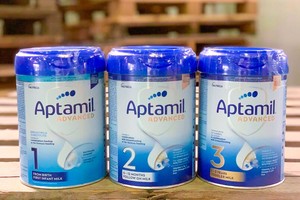 |
Doctors perform liver transplant with incompatible blood type on 15-year-old patient |
The donor is a grandmother and the recipient is her 15-year-old granddaughter. In particular, this is the first time that Hospital 108 has implemented a liver transplant technique with different blood types for children.
Associate Professor Le Van Thanh, Director of the Hospital 108’s Institute of Digestive Surgery, said that a 15-year-old female patient had hepatocellular carcinoma on a background of cirrhosis, so a liver transplant is the best option. However, the liver transplant was performed with ABO blood group incompatibility with the donor, who is the grandmother.
The difference between liver transplants that do not share the same blood type is that 3 weeks before the transplant, the liver donor is assessed for blood type antibody titers, then the antibody titers will be adjusted and desensitization treatment with immunosuppressive drugs will be performed with Retuximab solution and plasma filtration, to bring the donor's blood group antibody concentration down to 1/16 for liver transplantation.
Technically, just like normal liver transplants, the survival time of liver transplant patients is no different. After liver transplant, patients are monitored like regular transplants but must have antibody titer tests every 2 weeks until she will be discharged from the hospital.
Associate Professor Le Van Thanh said that in the past, patients who were indicated for a liver transplant were only given a transplant with the same blood type, but more people have registered for a liver transplant whereas just a few people agreed to donate their liver for transplants and there are even fewer donors with the same blood type.
The approach of liver transplants with incompatible blood types helps increase the chance of survival for people in need of a liver transplant, as well as increase the donor source. It is part of an ongoing effort to increase patient access to lifesaving organs amid a national shortage.
























